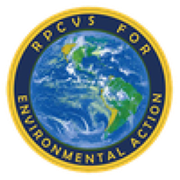Activity
-
Meredith Miller Vostrejs posted an articleClimate change emerges as a programmatic priority for the Peace Corps of the future. see more
In response to this unprecedented time in the world and its impact on the Peace Corps, NPCA engaged stakeholders to discuss the future of Peace Corps in a changed world. The result is Peace Corps Connect to the Future, a report with recommendations to Congress, the Peace Corps agency and Executive Branch, and the Peace Corps community.
Answering the question, “When the Peace Corps returns to the field, what should it look like?” three primary themes emerged: The Peace Corps community must be a leader in addressing systemic racism; The Peace Corps agency needs to stand by its community — and leverage it for impact; and Now is the moment for the Peace Corps agency to make dramatic change. Among these themes, climate change emerged as a critical issue of importance for Peace Corps programming and the wider Peace Corps community.
Chapter 5, Recalibrating Peace Corps Programs for the Future, suggests the programmatic focus of Peace Corps should be undertaken in a partnership of equals among stakeholders (PCVs, RPCVs, host communities) and reflect urgent global challenges, including climate change.
The chapter’s Big Ideas for Consideration leads with a focus on climate change as the agency’s highest programmatic priority. It reads:
5.1 Focus on climate change as a cross-sector initiative.
Climate change response should be emphasized as the agency’s highest programmatic priority, with training and field programs adjusted accordingly. Doing so will not only enhance Volunteer efforts in the field but will also generate excitement amongst future recruits and help to inspire a new generation of Volunteers.
Background: Current Peace Corps programs — agriculture, public health, education, environment, business — often intersect with climate change. Many host countries are already seeing impacts of climate change, from catastrophic storms to droughts and floods. Addressing climate change is a global priority, and virtually every country has a national strategy to combat climate change that Peace Corps Volunteers can support.
Recognizing climate change exacerbates existing inequities and vulnerabilities -while also demonstrating amazing resilience - on the part of our global partners and communities, the Returned Peace Corps for Environmental Action (RPCV4EA) looks forward to working with RPCVs and friends to create a community of concern and action for the climate and sustainable practices in our communities.
-
Caitlin Dickson posted an articleLearn about the behind the scenes work between NPCA and RPCV4EA to help expand RPCV4EAs capacity! see more
Recent Progress on Strategic Plan
By: Mike Kiernan, NPCA Consultant
The National Peace Corps Association (NPCA) and Returned Peace Corps Volunteers for Environmental Action (RPCV4EA) have worked closely together this year to expand the capacity of RPCV4EA and make it the go-to resource on climate change for the Peace Corps community.
Since January, we have increased membership by 50 percent and welcomed new RPCV members to manage our website, help with social media, recruit new members, produce a monthly newsletter and lead advocacy efforts. In addition, RPCV4EA also has made important progress in developing a strategic plan to advance the issue of climate change among RPCVs that reflects the values and perspectives of the Peace Corps community.
After a series of four forums of about 10 participants each between May 11 – May 21 to get further input, a Town Hall Meeting on Climate Change and Social Action was set for June 15. More than 50 RPCVs from around the country reviewed and voted on a proposed goal and key objectives for the climate change action campaign. In a July 6 Zoom meeting, 14 members of RPCV4EA attended a 90-minute strategic planning session to review the objectives and develop more than 30 different suggested activities to meet the objectives. The planning process will continue into August as the objectives are further refined. Here is the current iteration of RPCV4EA’s goal and major objectives.
Main Goal: Engage the RPCV community in applying its unique skills, connections and lifelong commitment to service to address the existential threat of climate change.
Four Objectives:
- Education & Outreach: Develop a shared understanding within the Peace Corps community of the impact of climate change on other major global issues including global health, racial injustice, mass migrations, access to clean water, women’s empowerment and girls’ education, food security, extreme poverty and other causes of concern to the Peace Corps community – causes that many individual RPCVs and NPCA affiliates are already working to address.
- Advocacy: Increase the capacity of NPCA’s affiliates and their interested members to engage in effective community-based advocacy on climate change and other issues of concern.
- Partnerships: Increase recognition of NPCA and its affiliate groups by the climate change community and its activists of the Peace Corps community as a strong collaborative ally for changing attitudes, policies and practices related to climate change.
- Resource Development: Strengthen the role of RPCV4EA as the go-to resource for the Peace Corps Community on climate change.
-
Returned Peace Corps Volunteers of Wisconsin- Madison posted an articleLila Holzman advocates for Peace Corps and the Planet see more
Group member Lila Holzman was recently featured in an NPCA blog about the importance of advocating for Peace Corps. Lila is a member of the Northern California Peace Corps Association (NorCal), and also on the Leadership Team of the RPCVs for Environmental Action.
Northern California Peace Corps Association (NorCalPCA) Advocacy Coordinator, Lila Holzman, recalls how, after several moves, two failed Peace Corps invitations and a year and a half, she was finally able to serve in a Sustainable Agriculture program in Panama in 2012. Her pre-service journey was a significant challenge leading up to her Peace Corps service. Read More...



